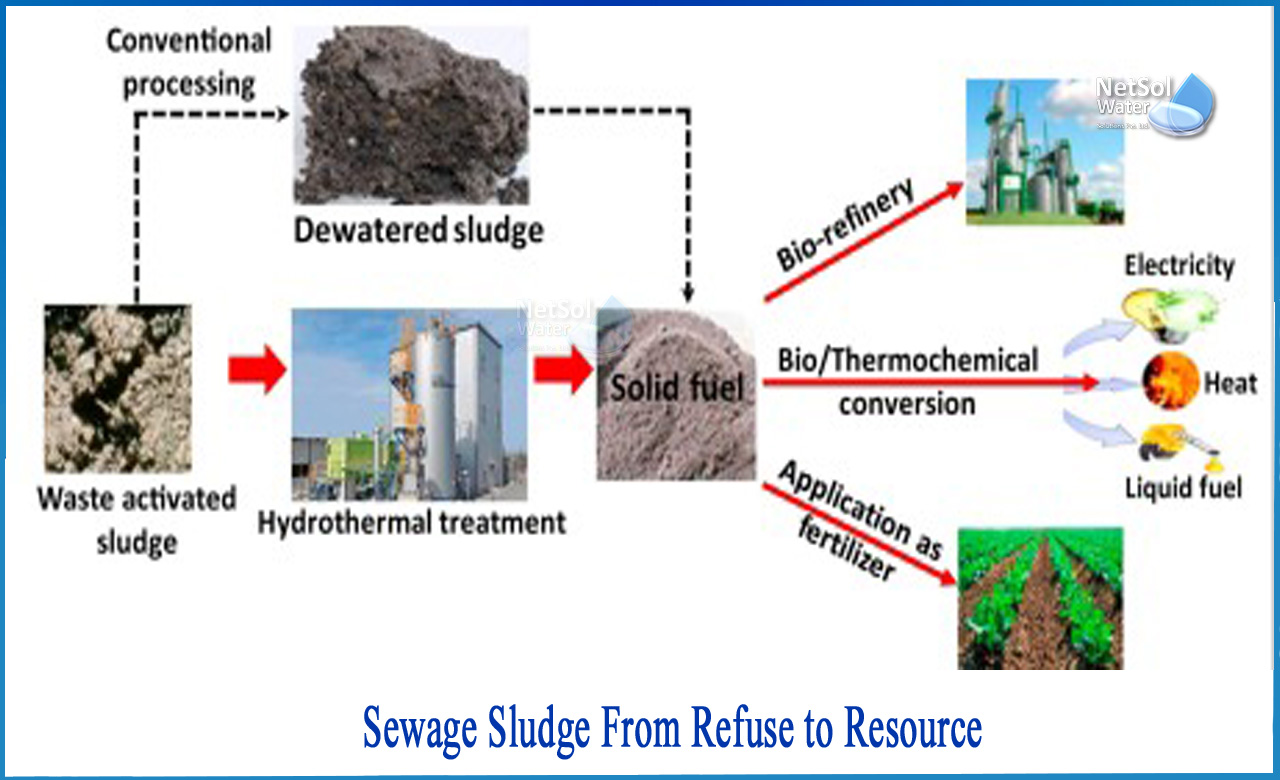Introduction
Sewage sludge is a by-product of wastewater treatment that is generated all over the world. Because of the massive production of sewage sludge all over the world, this organic waste must be appropriately treated.
The two primary disposal techniques for municipal sewage sludge management are reuse, which includes agricultural or landscaping applications, and ultimate disposal. There are several ways for reusing sewage sludge, but each has its own set of constraints. Sludge processing, or the preparation of sewage sludge for reuse, is another option. If it is not viable to employ sewage sludge in recovery procedures, it should be neutralized at some point.
The most significant idea related with sewage sludge transformation is recovery, which refers to the recycling or recovery of organic compounds.Information on the quantity of sewage sludge generated in sewage treatment facilities throughout the world is one of the main topics addressing excellent practices in the field of municipal sewage sludge. It will be impossible to make the proper judgments or investments in the processing, recovery, or disposal of sewage sludge without complete knowledge about the volume of created sewage sludge.
Can sewage sludge be used as fertilizer?
Agricultural fertilizers are the most prevalent application for biosolids from wastewater treatment facilities. Sewage sludge is a natural supply of the nutrients that plants require, such as nitrogen, phosphorus, magnesium, and potassium. Sewage sludge may be used efficiently to provide nutrients to soil once it has been adequately cleaned and thoroughly tested for impurities.
In some countries, there is work to be done for proper regulation and adequate testing to ensure that biosolids which are applied to land are safe and free from toxins or other pollutants. In municipal wastewater treatment, floating sludge may include oil, grease, wood and vegetable matter.
Creating Energy from Sludge
Biogas is an interesting renewable energy source that is only now gaining mainstream traction. After the skimmed and screened solids are removed from the water in many wastewater treatment facilities, they are subjected to anaerobic digestion to decrease the bulk of the organic matter and inactivate pathogens. Biogas, an ecologically beneficial fuel, is produced as a by-product of this process.Large wastewater treatment facilities may satisfy up to 100 percent of their energy requirements through internal generation of power, said by various researchers. Biogas is a rapidly expanding energy source, with anaerobic digestion plants and wastewater treatment facilities playing a large role in supply expansion.
Biosolids as Construction Materials
Currently, studies are being conducted to assess the possibility for sewage solids to be utilized in the fabrication of construction materials. Germany and Switzerland have begun to use cement manufactured from sludge ash with success. Another RMIT research looked at the performance of biosolids-based bricks. These new manufacturing technologies appear to be promising as a means of transitioning to more sustainable building and construction materials.
Thus everyone is moving towards sustainability and so is Netsol Water.
Netsol Water is Greater Noida-based leading water & wastewater treatment plant manufacturer. We are industry's most demanding company based on client review and work quality. We are known as best commercial RO plant manufacturers, industrial RO plant manufacturer, sewage treatment plant manufacturer, Water Softener Plant Manufacturers and effluent treatment plant manufacturers. Apart from this 24x7 customer support is our USP. Call on +91-9650608473, or write us at enquiry@netsolwater.com for any support, inquiry or product-purchase related query.



